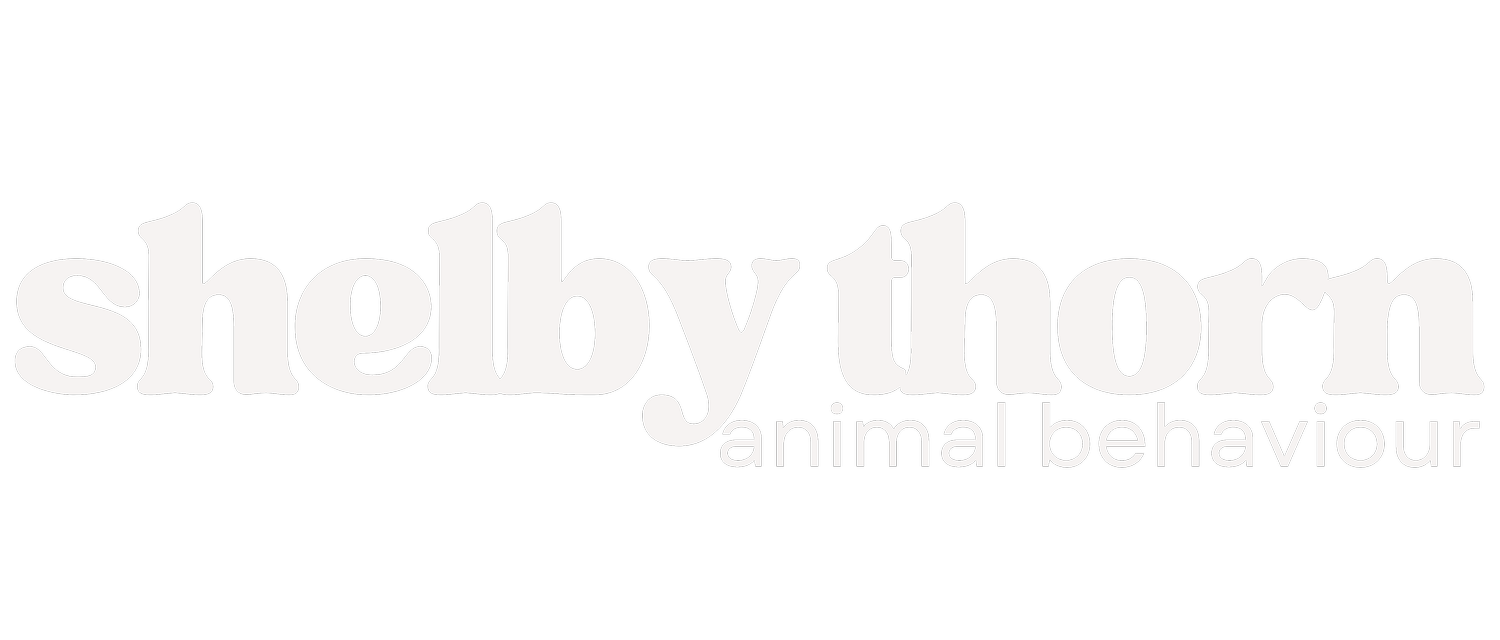Training with treats.
I feel like you use a lot of treats, will I have to use treats forever?
We’re certain you wouldn’t get up and go to work every day for nothing! In our human society money is our strongest reinforcer. Every dog is different, but treats are used in training because they are often an animal's strongest reinforcer, that is, they are highly desired. Initially we use treats so the animal understands what it is we would like them to do, commonly through luring. We know from human psychology that we are more likely to display behaviour when it is acknowledged or recognised. It’s important to remember when animals are training they are working for us. When dogs display wanted behaviours it should be reinforced so that the wanted behaviours are more likely to occur again, this makes it really clear to the dog what your expectations are.
Once the dog has a clear understanding of the wanted behaviour, you can start to slowly fade out the use of food. If this is done too quickly, dog’s can sometimes become confused, and feel that they are no longer displaying the desired behaviour because it is suddenly not reinforced, and so the wanted behaviour ceases. This is called extinction. So you’d want to move to an intermittent schedule of reinforcement also referred to as random reinforcement. As it sounds, this is when you offer a reinforcer randomly and not every time the behaviour is performed. This should motivate dogs in the same way people can develop a gambling addiction - they continuously play the game for a chance to win, but the win has to happen every now and again to keep a person hooked. Win’s produce dopamine which is a hormone that makes us feel good. This becomes addictive, and increases motivation when dog’s are training!
Shouldn’t my dog offer me good behaviour just because I want them to?
With most dogs you can definitely get there! But this all comes down to the relationship you have with your dog. Great relationships are developed and take work, they don’t just happen. You can develop a positive, fun and motivating relationship with your dog through reinforcers, this can be food, play, games, verbal praise or pats. Each dog is different as to which reinforcer is most desired, and this will often change throughout their life. Commonly, as a generalisation, puppies are usually easily motivated by treats, however through the building of a great handler - dog relationship by the time they reach adolescence they may be greater motivated by games and play. By the time a dog reaches adulthood it may see pats or verbal praise as a highly valued reinforcer. At your job, you are far more likely to stay after hours and produce greater work for a boss who is appreciative of you and whose friendship you benefit from, than a boss who is blunt and doesn’t acknowledge your efforts. It all comes down to the relationship.

